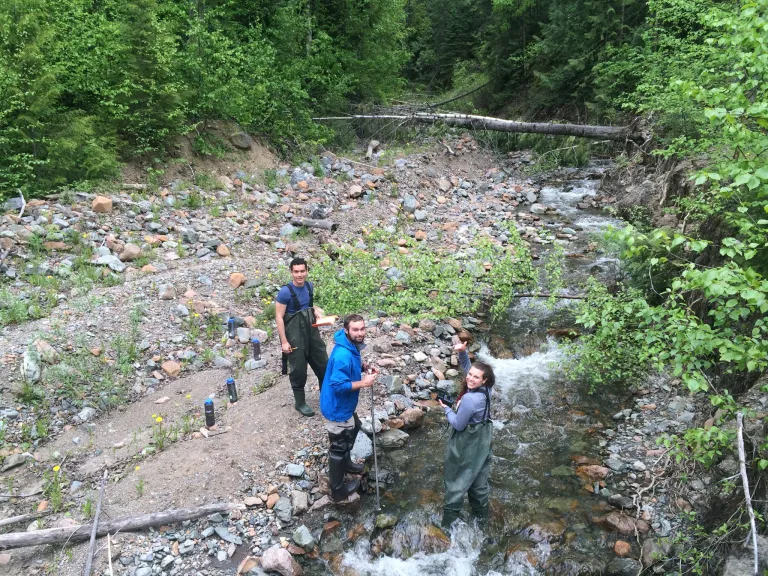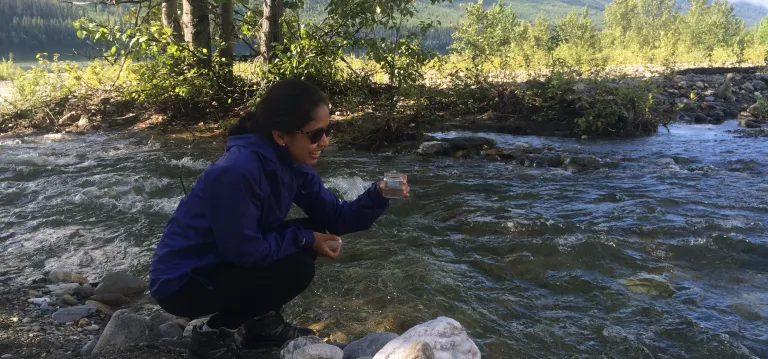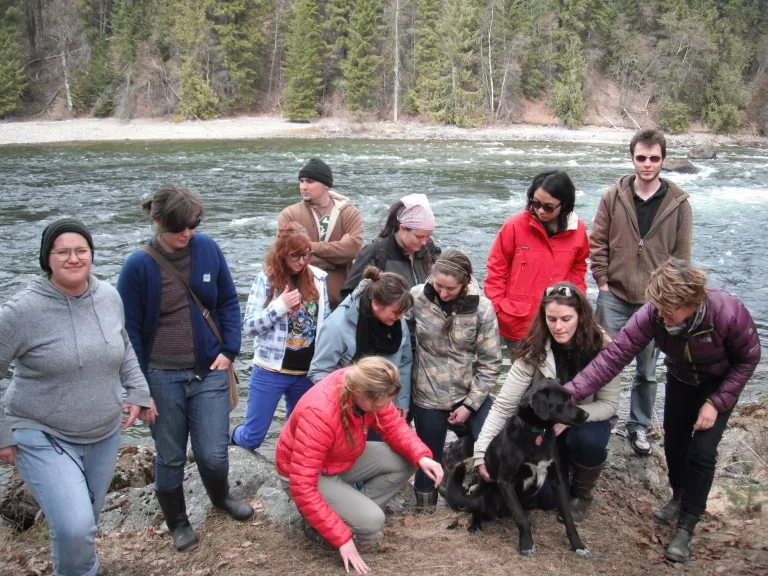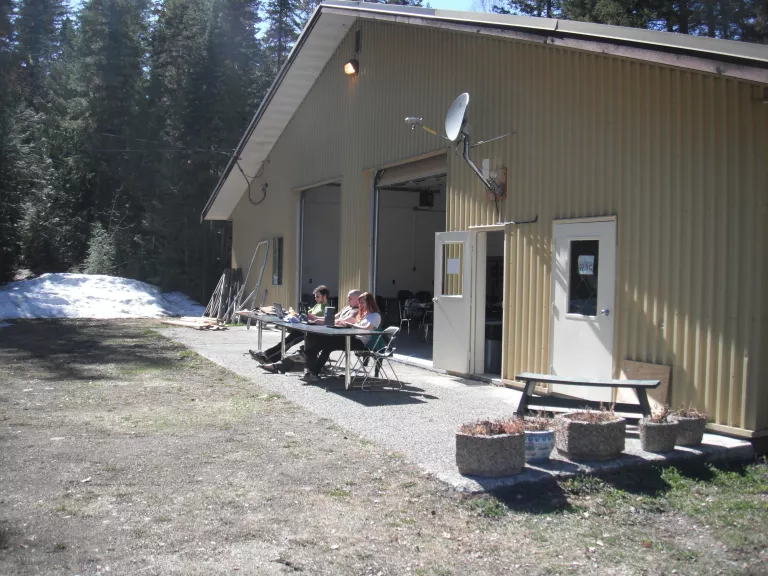
Researching the environment in the environment is a central advantage enjoyed by field stations offering education programs. In field schools scientific questions are closely connected to natural processes which in turn are linked to laboratory methodologies. Field based courses shorten those links and allow students to address tangible research problems and data. An added benefit of this immersive experience is prolonged interaction among students, field staff, instructors and professors providing greater opportunity for knowledge exchange. Experiential teaching and learning opportunities at the QRRC are broad-based, multi-disciplinary, and are supported by a newly enlarge and equipped lab space. For further information or to book a field course please contact us.
Geography 333 and 498 - Science without Borders students
From June 2nd to July 11th, 2014, the QRRC welcomed 5 students from Brazil looking to gain experience in field techniques and research methodology in geography. The students developed a suite of hydrology, environmental science and biological techniques. Using these techniques the students examined historical and current mining practices on several local streams.

UNBC Biology 302 - Limnology
From Sunday April 21, 2013 to Saturday May 4, 2013 the Quesnel River Research Centre (QRRC) hosted, in close partnership with the Endowed Chair of Landscape Ecology Dr. Ellen Petticrew, a full-credit University of Northern British Columbia course. For these two weeks eleven students-eating, working and sleeping at the QRRC-immersed themselves in field and lab work for a problem-based learning project in limnology. This was the first UNBC course hosted entirely at the QRRC, complimenting previous courses from UNBC and other universities that have delivered field components at the QRRC.


Researching the environment in the environment is a central advantage enjoyed by field stations offering education programs. In field schools scientific questions are closely connected to natural processes which in turn are linked to laboratory methodologies. Field based courses shorten those links and allow students to address tangible research problems and data. An added benefit of this immersive experience is prolonged interaction among students, field staff, instructors and professors providing greater opportunity for knowledge exchange. Experiential teaching and learning opportunities at the QRRC are broad-based, multi-disciplinary, and are supported by a newly enlarge and equipped lab space. For further information or to book a field course please contact us.
Geography 333 and 498 - Science without Borders students
From June 2nd to July 11th, 2014, the QRRC welcomed 5 students from Brazil looking to gain experience in field techniques and research methodology in geography. The students developed a suite of hydrology, environmental science and biological techniques. Using these techniques the students examined historical and current mining practices on several local streams.